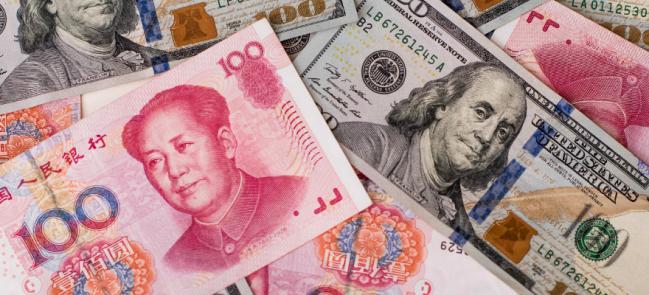By Jeff Patterson
The popularity of the Chinese yuan has soared to new heights on EBS’ trading platform, having achieved the distinction of being the third most traded currency on its platform, according to a recent Reuters report.
The yuan’s surge is notable given its supplanting of traditional pairs such as the USD/CHF and EUR/JPY on one of the main independent venues where banks trade currency baskets. According to officials at EBS Brokertec, the insatiable appetite for the yuan or renminbi has been upwards of 50% YoY. The update is commensurate with the recent announcement by SWIFT’s currency tracker, which had showed the yuan jump up to the number four slot in day-to-day payments on a global scale.
The revelation comes on the back of renewed pushes at several International Monetary Fund (IMF) meetings this month for the yuan to be added into the fund's benchmark currency basket – the stance adopted by the Chinese government was the advent of recent reforms pushing it closer towards qualification on the basket.

In a bid to capture interest in yuan trading, onshore markets are also rumored to be extending their trading hours to 15:30 GMT to better overlap with European trading hours. However, the push towards IMF benchmark qualification for the yuan is hardly universal, with several international critics, namely the United States, that have argued that currency controls in China are a prohibiting force towards this end.
According to Jessica Roberts, Head of Strategic Currencies at EBS in London, in a recent statement on the yuan’s ascension, "We have seen the number of counterparties who are trading spot CNH increase by 50 percent on a daily basis over the past year. It is now the third most traded currency on EBS, although it is still some way behind the euro and yen (dollar pairs)."
"We see it as operating, transparent and deep enough to trade across a 24-hour period. We really regard it now as a major currency. However, one reason why the yuan may not be included in the SDR would be the credit constraints on the Chinese banks. You do have these growth challenges show up from time to time. Chinese banks may need ISDAs with international banks, as they need to establish relationships with counterparties,” added EBS's Head of Markets, Darryl Hooker, in an accompanying statement.
